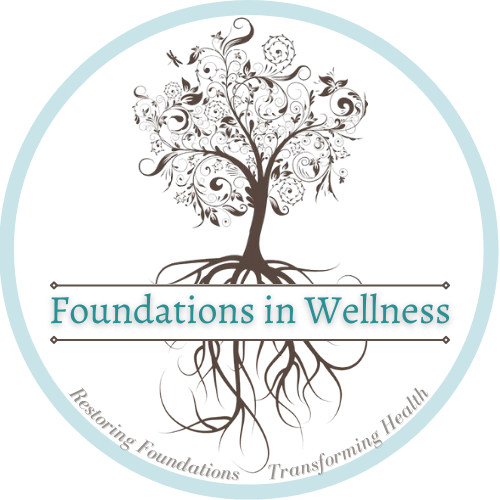Introduction
In our modern diets, sugar is more than just a sweet treat. It’s a pervasive ingredient that lurks in numerous processed foods, from bread and cereals to pasta sauces and savory snacks. This omnipresence makes it easy to consume sugar in amounts far exceeding healthy levels, often without even realizing it. Understanding the full impact of sugar on our health and learning how to manage its consumption is crucial in preventing a range of serious health issues.
Extensive Health Risks Associated with High Sugar Intake
The detrimental effects of excessive sugar intake are broad and alarming, with scientific research linking it to a multitude of health problems:
- Obesity: Sugar is a significant driver of the global obesity epidemic. It is high in empty calories and prompts an increase in overall calorie intake, leading to substantial weight gain. Furthermore, sugar disrupts metabolic processes, enhancing fat storage and complicating weight management efforts (Malik, V. S., et al., 2013).
- Type 2 Diabetes: High sugar consumption directly impacts blood glucose levels and insulin sensitivity. Regular intake of high-sugar foods leads to prolonged elevated blood sugar, which over time can result in insulin resistance, a precursor to type 2 diabetes (Basu, S., et al., 2013).
- Dental Health Issues: Sugar’s role in dental health deterioration is well-documented. It reacts with bacteria in the mouth to produce acid that erodes tooth enamel, leading to cavities and other serious dental problems (Moynihan, P., & Kelly, S., 2014).
- Heart Disease: Excessive sugar intake can adversely affect the heart by increasing triglyceride levels, a type of fat found in the blood, which is a known risk factor for cardiovascular disease. Additionally, the link between sugar, obesity, and insulin resistance further heightens the risk of heart disease (Yang, Q., et al., 2014).
- Cancer: Some studies suggest a connection between high-sugar diets and certain types of cancer, mediated through indirect pathways such as obesity and inflammation, known risk factors for several forms of cancer (Gallus, S., et al., 2013).
- Leaky Gut Syndrome: High sugar intake can disrupt gut flora and damage the intestinal barrier, contributing to leaky gut syndrome. This condition allows bacteria and toxins to “leak” into the bloodstream, causing inflammation and potentially triggering immune responses (Lambert, J. C., 2015).
- Mental Health: Emerging evidence links high sugar consumption with various forms of depression and anxiety. Sugar induces mood fluctuations due to its effects on blood glucose levels and can exacerbate inflammation, a known contributor to several mental health disorders (Knüppel, A., et al., 2017).
- Respiratory Problems: Excessive sugar consumption is associated with an increased risk of respiratory diseases, including asthma. Sugar promotes inflammation and can alter immune responses, exacerbating these conditions (Lang, J. E., et al., 2018).
The Challenge of Hidden Sugars in the Diet
Sugar is not only present in sweet treats but is also a hidden component of many processed foods, contributing to unintentional overconsumption. Manufacturers often add sugar to products not traditionally considered sweet, like bread and pasta sauce, enhancing flavor while also adding unnecessary calories and health risks.
Identifying Hidden Sugars
To combat hidden sugars, it is crucial to read ingredient labels meticulously. Sugars come under many names and forms:
- Natural Sugars: Including honey, maple syrup, and molasses. Though often marketed as healthier, they affect blood sugar similarly to regular sugar.
- Refined Sugars: Examples include table sugar (sucrose) and high-fructose corn syrup, both of which are highly processed and detrimental to health.
- Sugar Alcohols: Such as xylitol and sorbitol. While they are less impactful on blood sugar, they can cause digestive issues if consumed in large amounts.
- Fruit Concentrates: Often derived from fruit, these are concentrated forms of sugar and contribute significantly to excessive sugar intake.
Strategies to Reduce Sugar Consumption
Reducing sugar intake requires vigilance and proactive measures:
- Become a Food Detective: Spend time reading food labels to identify and avoid added sugars. Understanding the various names for sugar can help you spot it in products.
- Choose Whole Foods: Prioritize whole, unprocessed foods like vegetables, fruits, whole grains, nuts, seeds, and lean proteins, which are naturally low in added sugars and rich in essential nutrients.
- Understand Carbohydrates: Distinguish between simple (bad) and complex (good) carbohydrates. Complex carbs found in foods like whole grains and vegetables digest slower, causing lower and slower rises in blood glucose.
- Limit Sugary Beverages: Beverages are the largest source of added sugars in many diets. Cutting back on sugary sodas, juices, and energy drinks can drastically reduce your sugar intake.
- Prepare Meals at Home: Cooking at home lets you control the ingredients and avoid the hidden sugars commonly found in restaurant meals and takeout.
Conclusion
Adopting a low-sugar lifestyle is not just about reducing sweets; it’s about making informed dietary choices that support long-term health. By understanding the hidden sources of sugar and its impacts on health, you can make informed decisions that align with your health goals. Through mindful eating and informed choices, you can significantly reduce sugar intake, improve your overall health, and navigate a world where sugar is ubiquitous and often hidden in many unsuspecting foods.


